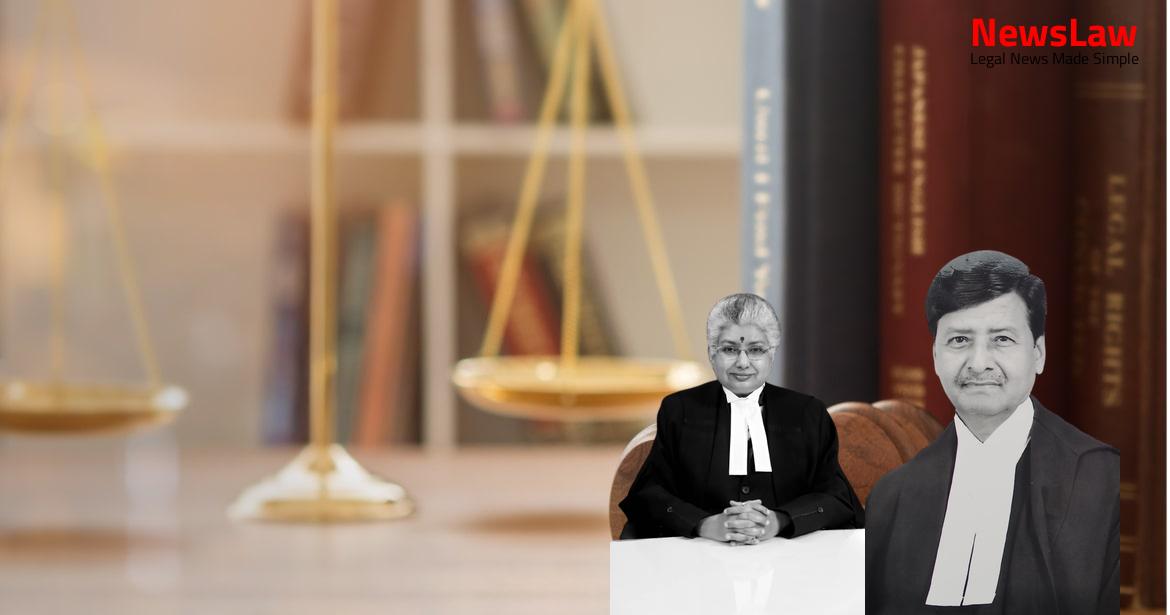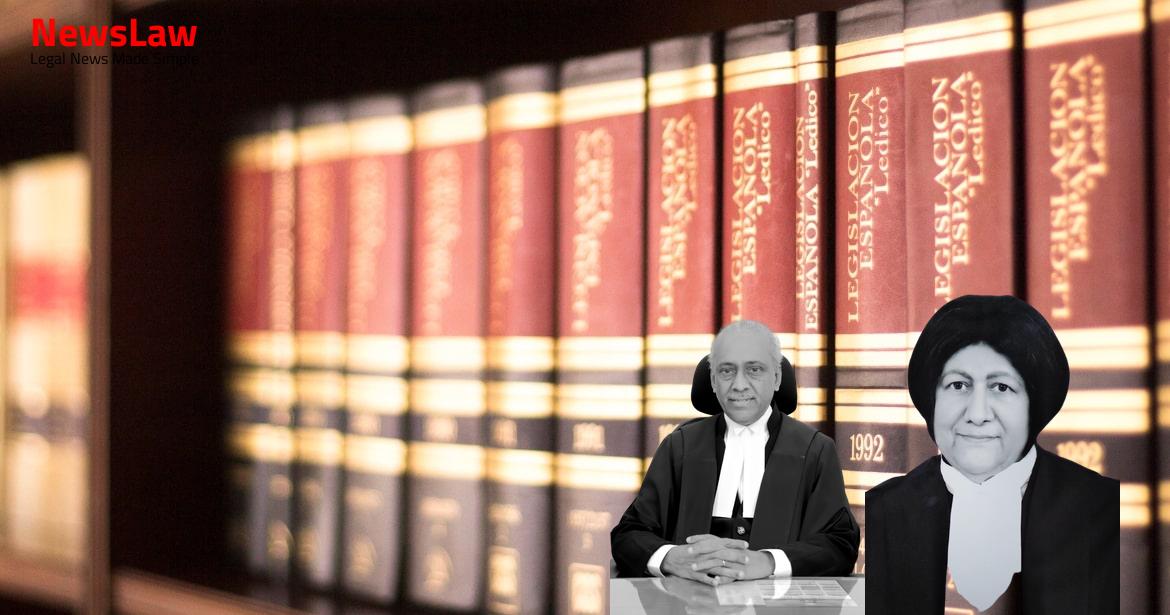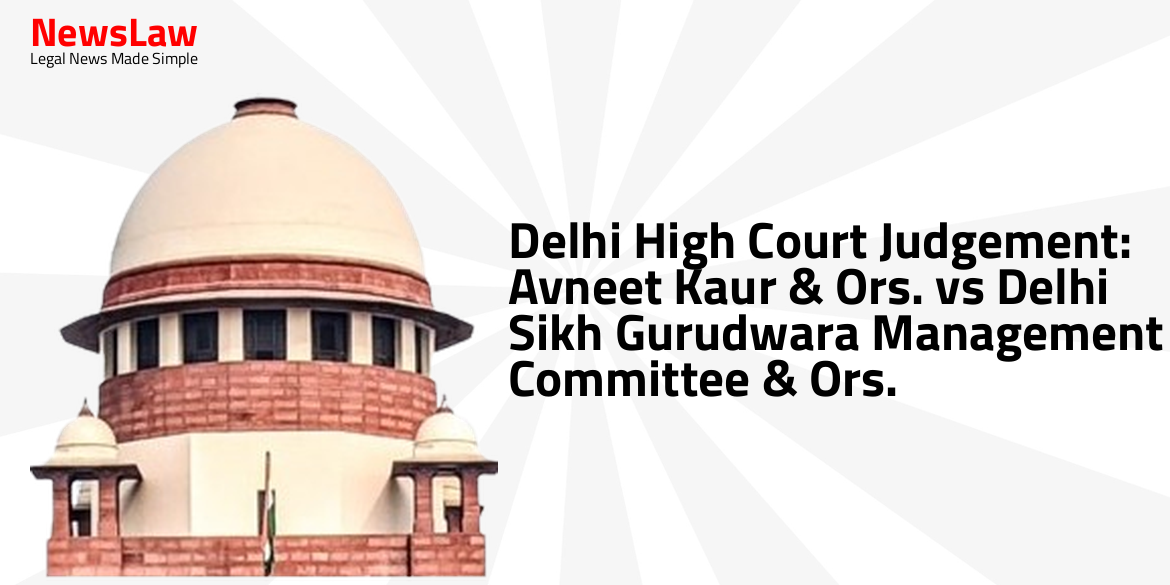The High Court’s detailed legal analysis regarding the irregularities in the written test of the Judicial Service Examination has led to significant changes in the selection process. From evaluating missing questions to ensuring fairness, the Court’s decision aims to uphold the integrity of the examination process. Let’s delve into the key aspects that have shaped the outcome of this case.
Facts
- The appellant filed a writ petition in the High Court of Punjab and Haryana with three grievances.
- The grievances included the absence of a minimum marks condition in the rules, a discrepancy in the Criminal Law paper, and failure to provide the appellant’s marks.
- The appellant’s application under the Right to Information Act was also rejected.
- A total of 348 candidates participated in the selection process for the Judicial Service Examination.
- The posts were separately advertised under the Punjab/Haryana Superior Judicial Service Rules, 2007.
- The selection process involves a written test followed by a viva-voce, with specific qualifying marks required for each paper.
- Candidates falling within three times the number of vacancies are called for viva-voce.
- The minimum qualifying marks are 50% for open category and 45% for reserved category candidates in the aggregate total marks of written test and viva-voce.
- The appellant participated in the selection process for direct recruitment to Punjab Superior Judicial Service/Haryana Superior Judicial Service.
- Separate advertisements were issued for 8 vacancies in Punjab and 11 vacancies in Haryana Superior Judicial Service in 2019.
- The recruitment was conducted as per the rules of Punjab/Haryana Superior Judicial Service Rules, 2007.
- The appellant applied for both recruitments under the respective rules.
- The appeal is against the High Court’s dismissal of the writ petition related to both recruitments.
Also Read: Admission Deadline Adherence in Medical Courses
Arguments
- Appellant raised objections regarding the procedure followed by the respondents in holding the written examination for Punjab/Haryana Superior Judicial Service Examination, 2019.
- Objections included missing questions in the Criminal Law paper, availability of Bare Acts, discrepancies in General Knowledge paper, and haste in examining answer scripts.
- Appellant’s request to cancel the written examination and hold it afresh was based on perceived unfairness and lack of transparency in the selection process.
- High Court noted discrepancies in the Criminal Law paper but dismissed the appellant’s claim due to the delay in raising objections post declaration of results.
- Appellant claimed lack of in-house remedy for grievances in the advertisement, challenging the sustainability of the High Court’s decision.
- Other candidates intervened in the proceedings under Court’s interim order, expressing uncertainties about their fate post viva-voce.
- Counsel argued that the appellant did not utilize available remedies post result declaration, emphasizing the transparency and fairness concerns in the selection procedure.
- Counsel argues against the apprehension of undue haste in declaring the result of the written examination, stating that the answer sheets were examined and evaluated by authorized examiners within a reasonable time.
- Ms. Kaveeta Wadia, representing an intervener, points out that the applicant is an in-service officer currently serving as Additional Civil Judge. He participated in a limited competitive examination against a quota reserved for in-service officers in Punjab. Despite qualifying in the written examination and being called for the viva-voce, his final result is withheld due to interim orders of the court.
- The intervenor, not directly involved in the current grievance raised by the appellant, highlights the situation of the applicant and the unknown fate of his result in the selection process.
Also Read: From Nominee to Disqualified: Supreme Court Scrutinizes Age Evidence, Declares Election Invalid
Analysis
- An objection was raised regarding a missing question in the Criminal Law exam paper, which was initially not disputed by the respondents.
- In cases where written examinations are followed by viva-voce, result declaration before the viva-voce may not be valid.
- Declaration of merit based on written exams should be done promptly to avoid bias in subsequent evaluations like viva-voce.
- It is advisable to provide candidates with final answer keys to enable them to assess their performance.
- Transparency in exams, especially in multiple-choice papers, can be maintained by providing OMR sheets to candidates and uploading provisional answer keys for objections.
- Objections regarding Bare Acts availability and haste in result declaration were deemed baseless.
- Marks of written exams are not to be disclosed until the process is complete to avoid bias or favoritism.
- Interview board for viva-voce was different from the one that conducted the written examination
- Not many candidates qualified against the number of vacancies available
- Suggestion for a common board to evaluate candidates who qualify in the revised result
- No objection raised by the appellant regarding four questions in Criminal Law paper V
- Option proposed to either conduct the paper V examination afresh or valuate the four questions to ensure a level playing field
- Court aims to salvage the selection process by addressing the irregularity in the written examination
- Suggested direction to evaluate question nos. 1, 2, 3, and 5 of Paper V (Criminal Law) while excluding question no. 4
- Request made to exempt candidates whose viva-voce results are withheld from appearing for the interview again
Decision
- The appeal succeeds and the impugned judgment of the High Court dated 23 January, 2020 is set aside.
- Respondents are directed to evaluate the marks obtained for specific questions of a particular exam paper.
- A fresh result of the written examination is to be declared for the candidates in the Punjab/Haryana Superior Judicial Service Examination, 2019.
- Candidates qualifying and falling within three times the number of vacancies may be called for viva-voce.
- Result of the selection process is to be finally declared as per the Rules, 2007.
- Result of the intervenor, Aashish Saldi, in the Punjab Superior Judicial Services selection process, is to be declared and further action taken as per Rules, 2007.
- The directions are to be complied with in a period of two months.
Case Title: HARKIRAT SINGH GHUMAN Vs. PUNJAB AND HARYANA HIGH COURT (2022 INSC 881)
Case Number: C.A. No.-005874-005874 / 2022



